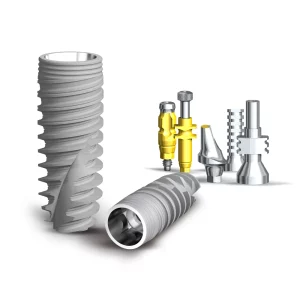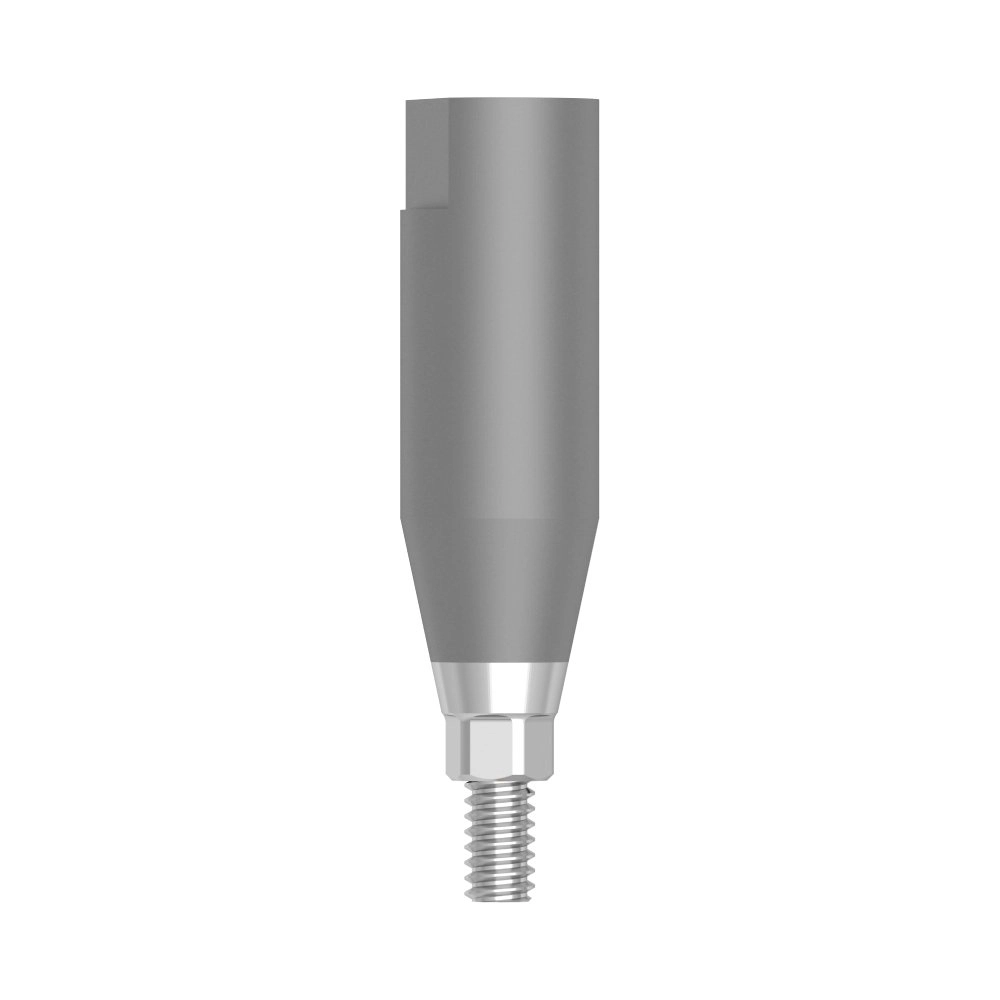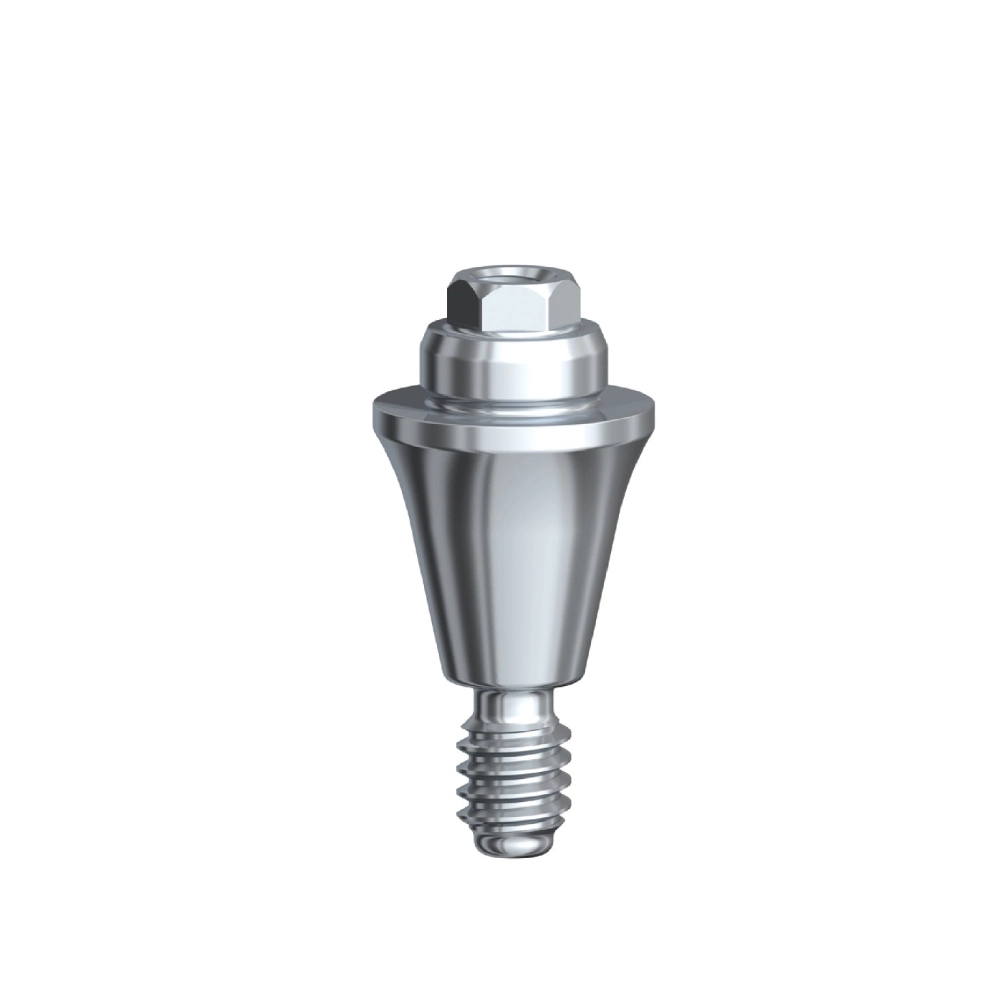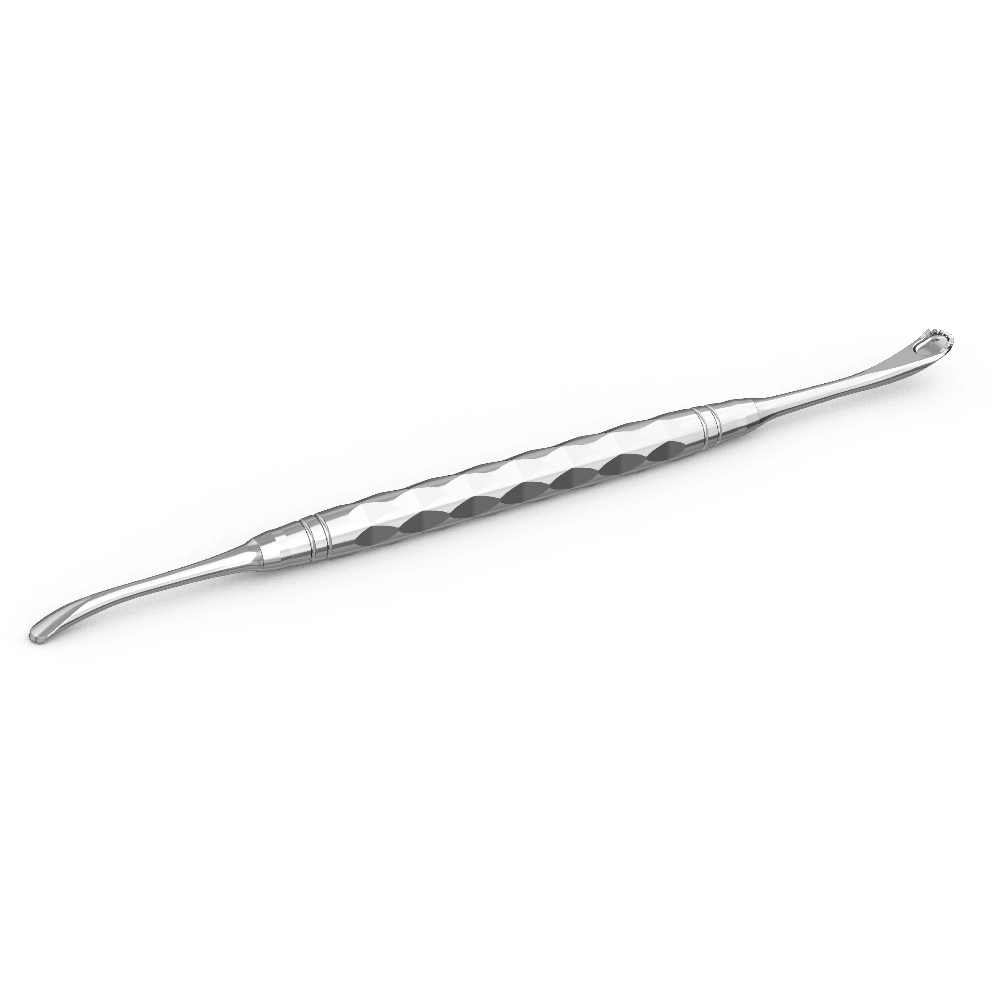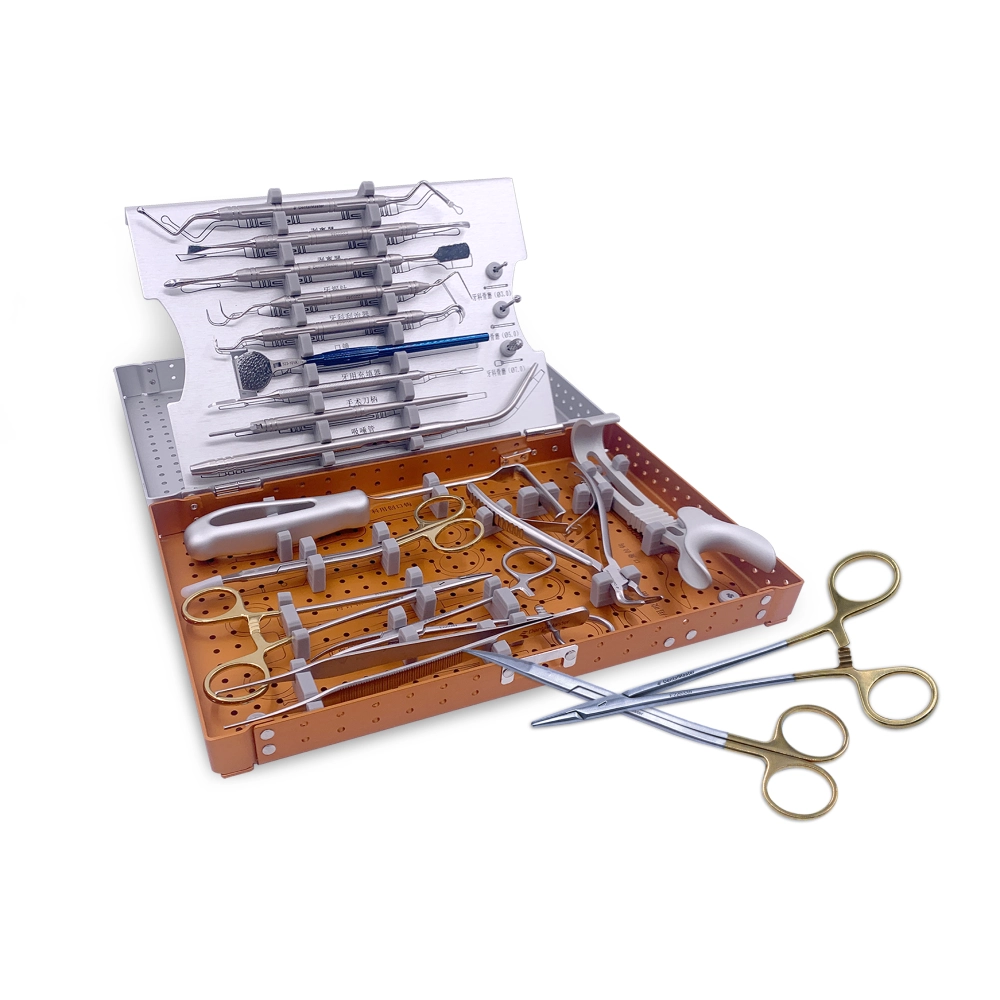Dental implants are undoubtedly an outstanding and enduring solution for replacing missing permanent teeth, offering a precise way to address this issue. Dental implants can generally be categorized into three types based on the number and scope of the implants: single-tooth implants, multiple-tooth implants, and full-arch implants. Each type aims to meet the unique needs of patients, whether it involves replacing a single tooth or multiple teeth or considering individual oral health conditions, aesthetic preferences, and budget constraints. The essence of dental implant treatment lies in the carefully inserted titanium or zirconia posts, which firmly anchor into the jawbone and quickly integrate with the surrounding tissues, becoming stable “artificial tooth roots.” This process not only accurately mimics the physiological structure of natural tooth roots, effectively stimulating and maintaining the health of the surrounding bone, but also ensures the stability of the implant, providing a solid foundation for subsequent tooth restoration. The restoration part can be customized according to the patient’s specific needs, with options including a single crown, dental bridge, or full-arch dentures, perfectly replicating the complete shape and function of the teeth and revitalizing the smile.
What is a dental implant?
Dental implants are an advanced and effective solution for replacing missing teeth. They consist of an artificial tooth root, typically made from materials like titanium or ceramic, which is surgically implanted into the jawbone. Once the implant integrates with the bone, a custom-made dental crown is attached to restore both the appearance and functionality of the missing tooth. Dental implants offer superior stability, durability, and a natural look, making them a popular choice for those seeking a long-lasting and comfortable tooth replacement option.
3 different types of dental implants
Single-Tooth Implants

Single-tooth implants are used to restore a single missing tooth in the oral cavity. This involves placing an artificial tooth root into the alveolar bone where the tooth is missing, followed by attaching a crown on top to restore the appearance and function of the lost tooth.
Features:
Targeted Repair: Focuses solely on the missing tooth without affecting surrounding teeth.
Quick Recovery: The surgery is minor, and recovery is relatively fast.
High Aesthetic Appeal: The implanted tooth matches the surrounding teeth in color and shape, blending seamlessly into the oral environment.
Suitable for:
Patients with a single missing tooth and good alveolar bone conditions around the gap.
Multiple-Tooth Implants

Multiple-tooth implants are designed to replace several missing teeth. This method involves implanting several artificial roots into the alveolar bone, upon which crowns or bridges are installed to restore chewing function and aesthetics.
Features:
High Flexibility: Treatment plans can be tailored to the patient’s specific tooth loss condition, including the number and placement of implants.
Good Stability: Multiple implants can support each other, increasing the overall stability and making the restored teeth more secure.
Comprehensive Functional Recovery: Improves both chewing function and aesthetic appeal, enhancing the patient’s quality of life.
Suitable for:
Patients with multiple missing teeth and relatively good alveolar bone conditions. The number of implants depends on the patient’s oral health, financial situation, and personal needs.
Full-Mouth Implants

Full-mouth implants are for patients who have lost all their teeth. This procedure involves placing several artificial roots into the alveolar bone of both the upper and lower jaws, on which dentures (such as porcelain or resin crowns) are installed to restore full chewing function and aesthetics.
Features:
Complete Restoration: Restores all the teeth in the mouth, giving the patient a complete dental arch again.
Strong Stability: Properly placed and sufficiently numerous implants ensure long-term stability and durability.
Personalized Design: Treatment is customized based on the patient’s jaw relationship and bite force to achieve optimal results.
Suitable for:
Patients who have lost all their teeth. The number of implants required for full-mouth restoration depends on factors such as the patient’s oral health, alveolar bone condition, and bite force. Typically, 4–8 implants are needed for the upper jaw, and 4–6 implants for the lower jaw to complete full-mouth restoration using bridge techniques.
Dental implants, as an advanced tooth restoration technology, offer advantages such as targeted repair, quick recovery, aesthetic appeal, and good stability. Depending on the number of missing teeth and individual patient needs, options include single-tooth, multiple-tooth, or full-mouth implant treatment plans. Patients should consider their oral health, financial situation, and personal preferences, and make decisions under the guidance of a professional dentist.
Am I Suitable for Dental Implants?
When evaluating whether you are a candidate for dental implant surgery, several key factors are considered to ensure the success of the procedure and your long-term oral health.
Bone Condition:
After tooth loss, the surrounding alveolar bone gradually resorbs, which can affect the stability of the implant. Therefore, adequate bone volume is crucial for the success of the implant. We use advanced CBCT (Cone Beam Computed Tomography) technology to provide high-precision 3D images, allowing us to accurately assess your bone volume. If there is insufficient bone, bone augmentation procedures (such as bone grafting or bone expansion) can often be performed to increase bone volume, creating a stable environment for the implant.
Age Factor:
Dental implant surgery is best suited for adults who have completed their growth and development, ensuring optimal results. For children and adolescents, since their facial bones and jaws are still developing, we generally recommend waiting until growth is complete (around 16 for girls and 18 for boys) before considering dental implants. In the meantime, temporary tooth restoration options can be provided to maintain oral function and aesthetics.
Health Condition:
Good overall and oral health is vital for the success of dental implant surgery. If you have certain chronic conditions (such as diabetes or heart disease), or if you are a heavy smoker or suffer from gum disease, these factors can increase surgical risks or hinder implant healing. Therefore, before the procedure, we will conduct a comprehensive health assessment and may recommend managing or controlling these conditions prior to treatment.
In conclusion, determining whether dental implant surgery is suitable for you requires a thorough evaluation of your bone condition, age, and overall health. With a professional assessment and personalized treatment plan, we can help you achieve the perfect restoration of your teeth. If you have any questions or need further information, feel free to consult with our dental team.
Conclusion
Dental implants, as an outstanding modern dental restoration technology, offer highly personalized, fast recovery, exceptional aesthetics, and stable reliability, making them an ideal choice for many patients with missing teeth. Depending on the number of missing teeth, oral health condition, budget, and personal preference, patients can choose from three types of dental implants: single, multiple, or full-mouth implants. When deciding on a treatment plan, it is important for patients to undergo a comprehensive evaluation with the guidance of a professional dentist to ensure the best restoration results and long-term oral health.

